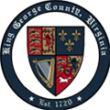Neurologist Physician
A neurologist is a specialized physician who diagnoses, treats, and manages disorders of the brain and nervous system. Neurologists typically act as consultants to primary care physicians. As a consultant, a neurologist diagnoses and treats a neurological disorder and then advises the primary health care physician. Common disorders treated by neurologists, in consultation with primary care providers, include strokes, headaches, epilepsy, sleep disorders, pain, tremors, brain and spinal cord injuries, brain tumors, peripheral nerve disorders, and amyotrophic lateral sclerosis. When someone has a neurological disorder that needs frequent attention, such as Alzheimer's or Multiple Sclerosis, the neurologist may act as that person's primary care provider.
Neurologists can recommend surgical care, but they do not perform surgery. They may monitor and oversee continuing treatment after surgery. Neurosurgeons are medical physicians specializing in the performance of surgical treatments of the brain or nervous system.
Training and Credentials
A neurologist has received an undergraduate degree, four years of medical school, a one-year internship and three years of specialized training. Many neurologists specialize in one area of neurology such as stroke, epilepsy or movement disorders. Like all physicians in Virginia, neurologists are licensed by the Department of Health Professionals, Board of Medicine and their licenses are renewed every two years.
Preparing for a Visit
During a neurological examination, the neurologist reviews the entire medical history, focusing on the current condition. Prior to your visit reflect upon and recall as much about your condition as possible. Do some preliminary research about your condition to help you understand some of the medical jargon that may be used and have a basic understanding of the condition. Write down any questions you may have about your condition and have these ready when you visit the neurologist.
After reviewing the medical and health history, a neurologist then tests vision, strength, coordination, reflexes and sensation. The information from this exam helps the neurologist determine whether the complication is in the nervous system. The neurologist may run additional tests to confirm a diagnosis or to find a specific treatment.
Consumer Tips
Consider keeping a separate notebook or journal about your condition and treatment. This can help you and your neurologist track improvements and changes. Try to keep records and information together in a file for easy reference.
